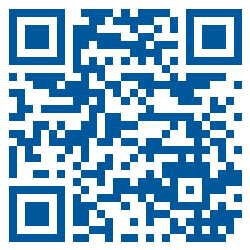
 Brain Injury Support Worker in Sevenoaks inSevenoaks
Brain Injury Support Worker in Sevenoaks inSevenoaks PUBLISHED WED 12 MAR 2025 Jump to job information section
Enviva Complex Care rNbD0wcu
Job description
This is a permanent role as a Brain Injury Support Worker with Libertatem Healthcare Group in Sevenoaks. The role involves providing comprehensive care and support to a female client in her 20s with an acquired brain injury. The successful candidate will be responsible for engaging with the client's personalized routines, providing emotional support, and collaborating with healthcare professionals to ensure the client's well-being.
The Brain Injury Support Worker will be responsible for engaging with the client's personalized routines, including preparing food and assisting with the care program. The role also involves providing emotional support and companionship, maintaining accurate records, and collaborating with healthcare professionals and family members to ensure comprehensive care. The successful candidate must have previous experience in a similar role, excellent communication and interpersonal skills, and a compassionate, patient, and empathetic nature. Additionally, they must be a confident female driver with a full UK driving license to support the client's transportation needs.
About us
- About The Role
-
A new opportunity has arisen for a female brain injury support worker to join our client in Sevenoaks. The client is female, in her 20's with an acquired brain injury and has a left side weakness (FES).
Due to the nature of the daily tasks on shift, including taking the client to therapy/hydro-therapy, you must have a full UK driving licence to drive the clients automatic vehicle and be a confident driver to support the clients anxiety.
Working Hours:
Monday & Tuesday 9am-11pm with a sleeping night shift (11pm-9am) in between. Pay- £15.35 per hour.Key Responsibilities:
- Engaging with personalised routines, preparing food including blending as risk of choking.
- Assisting with care programme.
- Providing emotional support and companionship.
- Maintaining accurate records of care provided and reporting any changes in clients’ conditions.
- Collaborating with a range of healthcare professionals and family members to ensure comprehensive care.
Requirements:
- Previous experience in a similar role.
- Female driver
- Excellent communication and interpersonal skills.
- Compassionate, patient, and empathetic nature.
- Ability to work independently and as part of a team.
- Flexibility to work the specified hours.
Benefits:
- Supportive and friendly working environment.
- Opportunities for professional development and training.
- Regular supervisions and Check Ins
- Both online and In-person training
Training & Background Checks: An enhanced DBS check & full training will be provided prior to commencing work with our client and you will also be supported by our clinical lead nurse for the area.
Our Safeguarding Commitment: Libertatem Healthcare Group recognise the benefits of people and organisations working together to prevent and stop both the risks and experience of abuse or neglect, whilst balancing the right to be safe with the right to make informed choices. At the same time, making sure that adult’s and children’s wellbeing is promoted including taking into consideration their views, wishes, feelings and beliefs in deciding on any action. With this in mind, we will work to adhere to the six key principles that underpin all safeguarding work.
#Libertatem
- About Us
- Libertatem Healthcare The Libertatem Healthcare Group, part of Sonderwell, was established to provide the very best levels of care and support for clients who have sustained Personal Injuries or suffered from Medical Negligence. Operating on a national basis, Libertatem Healthcare Group can provide your clients with care and support wherever they are located. Our care and support packages put our client’s independence at the very centre of everything we do.
- We provide care for clients who have complex needs. Our clients are entitled to select their care givers and may at times have certain preferences due to the nature of support they need. The requirements of our clients do not represent the views of our organisation, which is committed to being an equal opportunity employer. We offer a diverse range of positions and welcome applications from all. The Libertatem Healthcare Group is rated OUTSTANDING with the Care Quality Commission and is a registered provider with CIW in Wales.
If you're interested in this role but you have questions or you're not yet ready to apply, then please book a quick call with us and we'd be happy to answer any questions you have and tell you more about the role.
Requirements
See the job description for full role requirements.
Benefits
Benefits are provided by the employer and will be confirmed during your application.
A quick tap lets us tune future job matches for you

Scan with your phone to return to this page later.